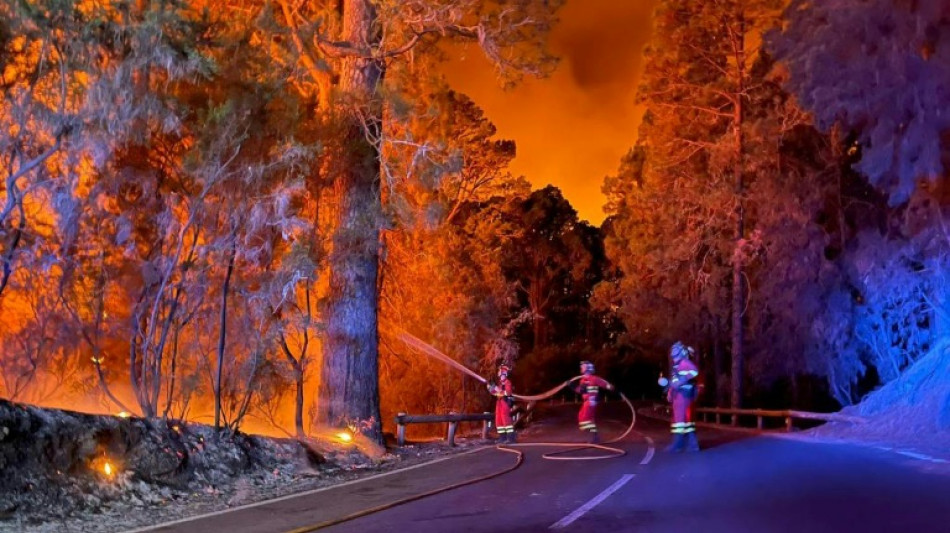

Spain firefighters make gains in battle against Tenerife blaze
Firefighters made headway Friday in their battle against a vast wildfire raging out of control in the forested interior of the holiday island of Tenerife that has forced 4,500 people to flee.
The blaze, which officials say is the most "complex fire" to hit the Canary Islands in 40 years, broke out late on Tuesday in a mountainous area of northeastern Tenerife.
Nearly 500 firefighters and soldiers backed by 17 aerial units have been drafted in to tackle the ferocious blaze, which has so far destroyed nearly 4,000 hectares (10,000 acres) of land, Spain's interior ministry said.
By midday (1100 GMT), firefighters noticed a "favourable evolution" on the main front of the fire, Montserrat Roman, head of civil protection for the seven-island archipelago told reporters.
So far, more than 4,500 people had been evacuated but the number confined to their homes had fallen to just under 1,700 after a confinement order was lifted for some 2,200 residents as conditions eased in La Esperanza near the airport, she added.
Earlier, officials said the wildfire -- which has a perimeter of 42 kilometres (26 miles) -- had advanced more slowly and predictably overnight, making it easier for crews to tackle the flames.
"Overnight the fire and the weather behaved normally," said Canary Islands leader Fernando Clavijo, explaining that the wind, the temperature and the behaviour of the fire on the first two nights had been "highly unusual".
Although air humidity levels rose overnight and the winds eased, helping the firefighters' efforts, forecasters warned the mercury was set to soar again over the weekend in Tenerife.
- Smoke cloud visible from space -
The fire has generated a pillar of smoke nearly four kilometres high which is visible on satellite pictures and has risen above the summit of Mount Teide, the volcano that towers over the island.
Reaching a height of 3,715 metres (12,200 foot), Teide is Spain's highest peak and a popular tourist destination, but all roads to the national park were closed on Thursday and would remain shut, the authorities said.
The main focal point of the fire lies some 20 kilometres away on the steeply forested slopes below, with the blaze sending clouds of ash across much of the island.
"This is probably the most complex fire we've ever had in the Canary Islands in at least the past 40 years," Clavijo said Thursday, citing the topography of the area, the high temperatures and winds that changed directions frequently.
The blaze broke out after the archipelago suffered a heatwave that left many areas tinder-dry.
As global temperatures rise due to climate change, scientists have warned heatwaves will become more frequent and intense.
So far this year, EFFIS figures show almost 76,000 hectares have been ravaged by 340 fires in Spain, which is one of the European countries most vulnerable to climate change.
A.Uggeri--IM



